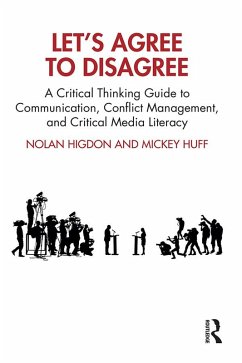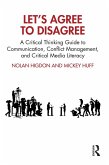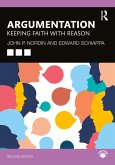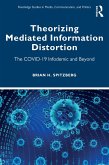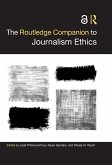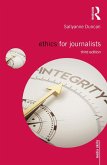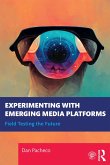Dieser Download kann aus rechtlichen Gründen nur mit Rechnungsadresse in A, B, BG, CY, CZ, D, DK, EW, E, FIN, F, GR, HR, H, IRL, I, LT, L, LR, M, NL, PL, P, R, S, SLO, SK ausgeliefert werden.
Hinweis: Dieser Artikel kann nur an eine deutsche Lieferadresse ausgeliefert werden.
Allison Butler, Senior Lecturer & Director of Undergraduate Advising, Director Media Literacy Certificate Program, Department of Communication, University of Massachusetts, Amherst
"In the age of new and powerful tools of communication, democracy has become more fragile and vulnerable to attacks by right-wing forces. What is clear is that the tools of communication, culture, literacy and critical thinking are more crucial than ever in creating both informed citizens and maintaining a substantive democracy. Let's Agree to Disagree is a brilliant and informative guide and analysis to the most defining features of what it means to create critically literate citizens, to enable how they might communicate constructively with each other, and what it means connect an informed public to critically engaged actions. Higdon and Huff provide a brilliant, crucial analysis of the dangers that democracy now faces; they provide an invaluable analysis of what it means to understand and engage the role of communication in fighting against the forces of civic illiteracy, and the role that citizens can play in engaging, understanding, and assessing how to think, engage, and act through an informed lens of critical thinking. Let's Agree to Disagree is both a primer and an invaluable resource on misinformation, critical thinking, a disregard for the truth, and what is necessary to address the new and powerful forms of communication that now shape politics, power and mass consciousness. This is a book that should be read by anyone is believes that matters of literacy, truth, rationality, and civic courage are essential to fighting for a radical democracy."
Henry Giroux, McMaster University Professor for Scholarship in the Public Interest, Paulo Freire Distinguished Scholar in Critical Pedagogy, at McMaster University
"Let's Agree to Disagree provides a comprehensive analysis of the challenges, failures, and successes of communication and critical thinking for justice and democracy. Nolan Higdon and Mickey Huff have written an essential book for all educators because dialogue and critical reflection are the heart of progressive education. The better we learn to listen, question, and respond with compassion, empathy, and respect, the more likely we will build genuine relationships of caring and critical inquiry where authentic learning occurs and social justice thrives."
Jeff Share, Ph.D., University of California, Los Angeles
The Real News:
https://therealnews.com/polarizing-and-isolating-americans-is-good-business-for-media-monopolies
Full Measure News:
https://fullmeasure.news/news/shows/agree-to-disagree

